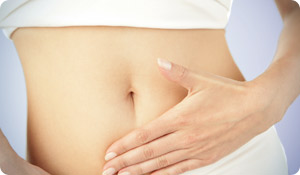
A group of international scientists, led by Chinese researcher Wang Jun of the Beijing Genomics Institute, have found that some of the hundreds of types of bacteria in the digestive system may be linked to the causes of specific diseases, including cancer, diabetes and Crohn's disease. The research, which was based on the analysis of stool samples from 124 people from Denmark and Spain, found that there are more than 1,000 different species of bacteria in the human gut. Understanding how and which bacteria plays a role in a specific disease, said the researchers, can help doctors treat the underlying cause of that disease by killing the bacteria responsible for the problem rather than treating the whole body.
It's believed by some scientists that Crohn's disease, a form of inflammatory bowel disease (IBD), may be caused by a variety of bacteria. A person's genetic predisposition to the disease and environmental factors are also believed to play a role in development of the disorder.
Creating the first genetic catalog of the organisms found in the digestive system is just the first step, say the researchers, in helping find definitive associations between these bacteria and disease, which can lead to better treatments.
Crohn's disease is a chronic disorder that causes inflammation of the digestive tract, also called the gastrointestinal tract (GI), and can affect any area of the GI tract from the mouth to the anus. The hallmarks of the disorder include abdominal pain and diarrhea, rectal bleeding, weight loss, arthritis and skin problems. Although there is currently no cure for Crohn's disease, there are treatments to control inflammation or surgery to remove a damaged portion of the digestive tract.
Lifestyle Changes
While there is no conclusive evidence that diet actually causes IBD, certain foods and beverages can exacerbate symptoms, especially during a flare-up. To determine which foods may be causing you trouble, try keeping a food diary to track what you eat and how you feel afterwards. Eating five or six small meals a day instead of two or three large ones and drinking plenty of liquids, especially water, can also help. Here a few more tips:
- Limit dairy products
- Eat low-fat foods and avoid butter, margarine and fried foods
- Talk to a dietitian. If you're losing weight or your diet has become very limited, talking to a registered dietitian can help you plan a diet that includes all the nutrients you need to stay healthy





